Do you have what you need to make your garden grow?


Garden Center
Store Hours
Mon-Sat:
6:00am - 10:00pm
Sun:
8:00am - 8:00pm
Curbside:
09:00am - 6:00pm
Location
Popular at Your Garden Center
Summer Popular Garden Supplies and More
Explore June Live Plants
Garden Project Calculators
;Resize=(703,395.44))
Grass Seed Calculator
When you're ready to seed your lawn, our calculator helps you estimate the amount of grass seed you'll need to get the job done.
;Resize=(703,395.44))
Mulch Calculator
Enter your preferred material, the square footage and mulch depth of the coverage space for accurate results.
;Resize=(703,395.44))
Fencing Calculator
We'll calculate the amount of fencing you should purchase based on your property needs.
Shop Outdoor and Garden Brands
Frequently Asked Questions About Gardening
What number planting zone am I in?
Check the USDA zone map, as planting zones have shifted over the years. Zones with higher numbers can plant earlier in the year. Increase your odds of successful gardening by choosing plants that are meant for your zone.
Is it ok to plant seeds outside?
If the soil isn't cold and frozen, consider planting your fruit, flower, or veggie seeds directly into your garden. This is called the "direct sow" method. Plant after the threat of frost is gone for the season, as seedlings and sprouts can't weather those conditions. You can also start your seeds indoors if you'd like. Consult your seed envelope for when and how to sow seeds.
How do I plant fruit seeds?
Read your seed envelope for the best info on how to grow spring flowers, fruits, and vegetables — indoors or outdoors. Requirements vary from one type of plant to the next. Some seeds should only be planted indoors, and your seed package will tell you that, too. You'll be a pro at planting seeds in no time.
Should I harden off my seedlings before planting them outside?
Yes, if you raised plants indoors from seeds in your own plant nursery, harden them before you transplant them. Hardening is the process of getting them used to outdoor life, spring rains, and temperature swings. It slows their growth until they're strong and ready to take off during a spring warm front. Hardening also makes your plants more resilient to a sudden cold snap. Speak to a garden center associate or read your seed packets for more info on caring for your tender seedlings.
How do I plant a transplant or baby plant?
Squeeze the plastic around the plant to loosen the soil. Carefully coax the plug of dirt with the plant into your palm, then place it into the hole you dug for it. Make sure the top of your transplant's soil is even with the garden soil, and carefully press the earth into place. Avoid leaving the plant as an island with a moat around it, and don't pack the ground too tightly. Your plant baby needs to breathe.
Should I use peat moss starters or coir starters?
Seed starters, full of nutrients in pellets or pots, work for new and experienced gardeners. You don't have to use these starters if you're planting in soil, but you may want to. Starting seeds in peat pots works best for delicately rooted plants like carrots and beets, as well as flowers that require an acidic pH. Some people prefer coir starters instead, as they have a neutral pH. Check what type of soil your plants need to help narrow it down, and chat with a garden center associate if you need more info.
Garden Project Ideas

Protect wood from carpenter bees with our guide on sealing surfaces, using traps, and applying safe pest control methods.

Check out our tips on banishing gnats indoors and out using traps, sprays, and moisture control to keep your home pest-free.

Safely remove poison ivy with our guide on protective gear, cutting techniques, and herbicide use for effective eradication.

Maintain a healthy lawn using organic methods like manual weeding, natural herbicides, and proper lawn care practices.

Grow apples successfully with our guide on choosing varieties, planting, pruning, and pest control for a bountiful harvest.

Cultivate thriving grapes with our step-by-step tips on site selection, trellising, pruning, and disease prevention.
The Home Depot Garden Center at Sw Tulsa
Celebrate Springtime Gardening
It's time to start thinking of spring. Clean the shed and sweep out the gazebo to prepare for sprouts poking up, fragrant breezes, and warmer temperatures. Planting seeds indoors means you'll be ready to transplant spring flowers and young veggie plants when the ground thaws and the frosts are through. You might even want to sow organic seeds directly into the earth. What better way to start than by exploring your favorite local plant nursery?
Plant Hardiness Zones Explained
The first thing you should know when planting vegetables, spring flowers, and other seeds is your planting zone. Every location in the U.S. and its territories is sorted by climate. Find your zone on the USDA zone map and learn when to plant seeds.
For example, you could plant bell pepper seedlings outdoors in mid-March in Zone 10, but not until the end of May in Zone 4. For best results, choose plants in your zone number or less. In other words, a Zone 9 garden can support plants listed as Zones 1–9. The timeframe to direct sow outdoors in your garden is often around a month later than the indoor start date. Be sure to read your seed packet for details. If you start seeds later than recommended, it's not ideal, but it should even out as time passes.
Gardening in Your Growing Zone
If you're in Zone 6–8, check out cruciferous veggies and certain herbs if you're ready to get planting. This includes kale, cabbage, and broccoli. Greens like spinach, artichokes, early-blooming annuals like marigolds, and fragrant herbs, including oregano, basil, and parsley, also don't mind an early beginning. Traditional garden vegetables like peppers of all kinds, cucumbers, and tomatoes are fine with an early spring or late winter planting indoors under the grow lights.
Look up the date of your last predicted frost, then count backward 6 to 8 weeks. That's when you should start your seeds indoors. The idea is to have strong baby plants that are ready for transplant at the same time the ground is warm enough. Do your best and enjoy the process — watching your plants grow, bloom, and put out tiny veggies that'll grow to harvest size is part of the fun.
Plant Seeds Outside With Direct Sow
Planting seeds with the direct sow method, right into the soil, is another option. It doesn't give you as much organized planning in terms of reliability and spacing compared to indoor starts. However, if you like to go with the flow, follow the instructions on your seed pack and try it out.
Your seeds might struggle to grow or get washed away, or bugs or rodents might eat the sprouts. But if you're really lucky, you might get strong sprouts, perfectly spaced and ready to grow all spring. The reality of your garden will usually be somewhere in between, and spreading out tiny sprouts throughout the soil isn't so bad. You know those sprouts are hardy and primed to survive, although there are no guarantees in the long term.
Start Seeds Indoors
If you're eager to get growing or would like more control in the care and feeding of seedlings, start your seeds indoors in your own seedling garden. In general, you can plant seeds indoors about a month before you can do it outside. Like direct sow, you push the seeds into the soil as directed on the seed packet, but that's where the similarities end.
You're responsible for giving them quality substitutes for rain and sun. Keep your seeds cozy with warming mats and grow lights, water them carefully with a spray bottle or watering can, then thin them as they germinate in groups of three. Give them a boost with a gently blowing fan as they lengthen into sprouts if you'd like. Harden them off to get them used to outdoor conditions, then transplant them into your garden when they're big enough.
Transplant Young Plants Into Their New Homes
By now, your plants have 3 or 4 true leaves — they'll look different from the miniature seedling leaves. When the ground is warm, and you're not expecting soaking rain, look into transplanting your big sprouts into their new outdoor home. "Transplant" means that you put these small plants straight into pots or garden soil. In cases where you direct sowed, you may still want to shuffle plants around for the best spacing and sun. That's also a transplant situation, as is repotting plants into larger pots.
Protect Your Garden With Mulch
Finish it all off with compost and mulch. Mulch keeps your soil moist and controls weeds. Compost enriches the soil so your garden can grow even better. It may help foster larger plants that bear more fruit and flowers. Mulch and compost can be purchased in-store or created at home. The next time you're looking for "mulch near me," stop by the Garden Center to get the right amount.
Greet the Spring
Late winter into early spring is an exciting time in the world of gardening. Prepare to fertilize your lawn, plan your garden and landscaping, and browse The Home Depot nursery to find inspiration on which spring flowers to plant when the weather warms. For those without lawns, consider adding artificial grass or a pellet grill to your outdoor space. Shop for the soil, seeds, and fertilizer you need in the aisles of your Sw Tulsa Garden Center, online, or on our mobile app. Let's get growing together.
Nearby Stores
Find Another Store
9808 E 71st
Tulsa, OK 74133
5.10 mi
Mon-Sat: 6:00am - 10:00pm
Sun: 8:00am - 8:00pm
4041 S Sheridan Road
Tulsa, OK 74145
5.61 mi
Mon-Sat: 6:00am - 10:00pm
Sun: 8:00am - 8:00pm
901 S Elgin Ave
Tulsa, OK 74120
8.15 mi
Mon-Sat: 6:00am - 10:00pm
Sun: 8:00am - 8:00pm
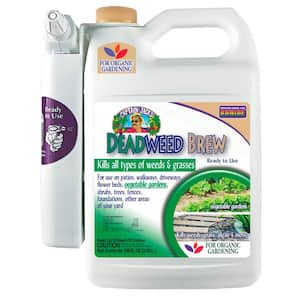
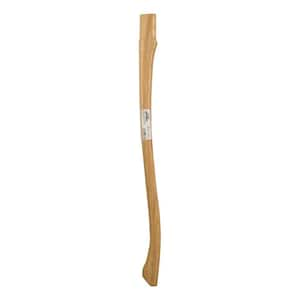
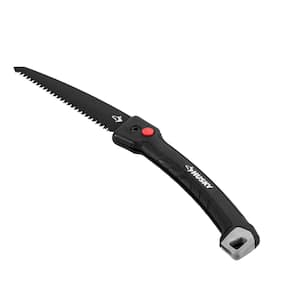
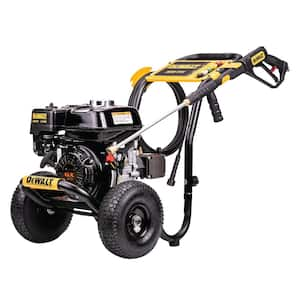
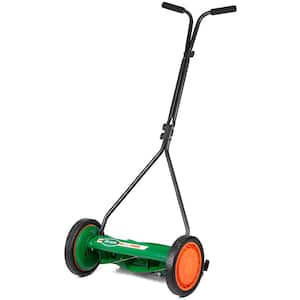
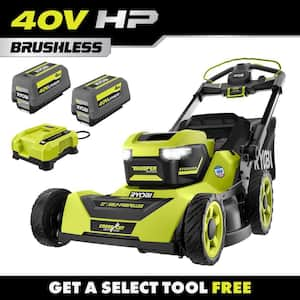
)
/17_514245_S_012_Product%20Image%20(square).jpg?im=Resize=(300,300))
)
)
)
;Resize=(300,300))
/2023_P2_Rain_Barrels_Product%20Image%20(square).jpg?im=Resize=(300,300))
)
)
)
)
;Resize=(300,300))
;Resize=(300,300))
;Resize=(300,300))
)
;Resize=(300,300))
;Resize=(300,300))
)
/12_SOIL_B_0420_Social%20media%20(square).jpg?im=Resize=(300,300))
;Resize=(300,300))
;Resize=(300,300))
;Resize=(300,300))
;Resize=(300,300))
)
;Resize=(300,300))
)
;Resize=(300,300))
;Resize=(300,300))
/18Patio_Camden_Seagrass_5pcSeating_Planters_302468736_DTL3_L_Social%20media%20(square).jpg?im=Resize=(300,300))
;Resize=(300,300))
;Resize=(300,300))
)
;Resize=(300,300))
;Resize=(300,300))
;Resize=(300,300))
;Resize=(300,300))
)
;Resize=(300,300))
)
)
.jpeg?im=Crop,rect=(363.69230769230774,1.2307692307692308,958.7692307692308,958.7692307692308);Resize=(300,300))
;Resize=(300,300))
;Resize=(300,300))
)
)
;Resize=(300,300))
)
)
;Resize=(300,300))
;Resize=(300,300))
)
;Resize=(300,300))
)
)
;Resize=(300,300))
;Resize=(300,300))
)
;Resize=(300,300))
/Capello_Spring_Mum_10in_Social%20media%20(square).jpg?im=Resize=(300,300))
;Resize=(300,300))
)
)
)
)
)
;Resize=(300,300))
)
)
;Resize=(300,300))
;Resize=(300,300))
;Resize=(300,300))
)
)
;Resize=(300,300))






































